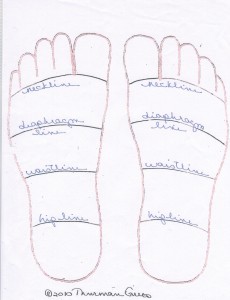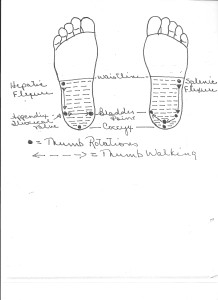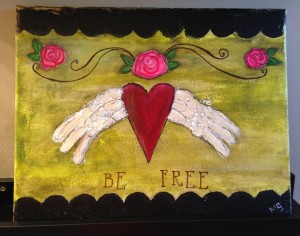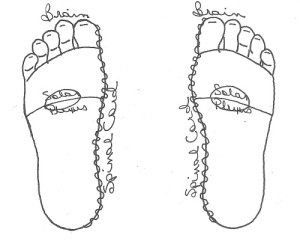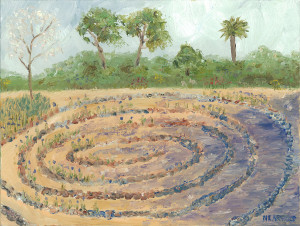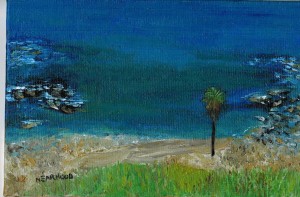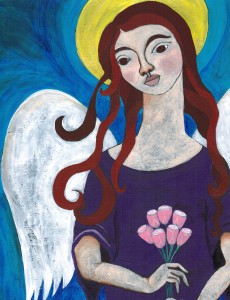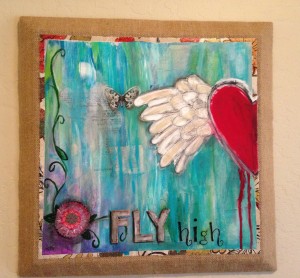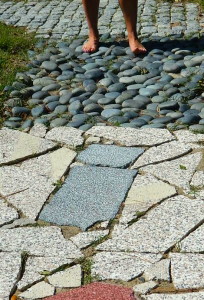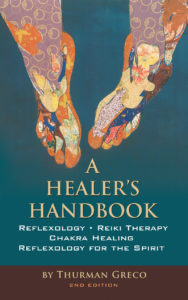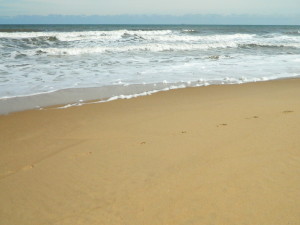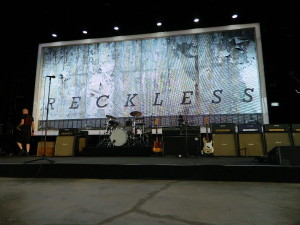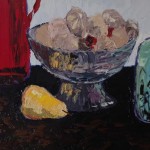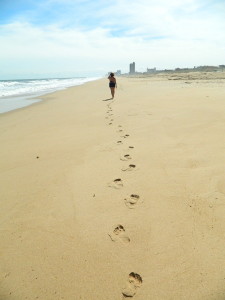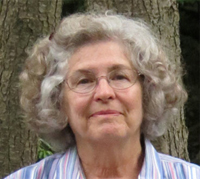Reiki – Is it in your toolbox? – Part 1
In these stressful times, we all need a toolbox because we’re all healers. And, we never know when we might need to use our healing tools.
Reiki is a basic healing tool that works almost anywhere, anytime.
Many of you reading this blog use Reiki. But, many don’t. Reiki was the basic skill which put me on my healing path. That’s not to say that I wasn’t healing. I’d been a massage therapist since the 1980’s. But, there’s a difference.
Before Reiki and after Reiki.
I’ll never forget the first time I heard the word: Reiki.
I was at a weekend continuing education class in Clinton, New York, at a place called Spring Farm CARES. There were about two dozen students in the class. As we each introduced ourselves to the group, every student, except me, mentioned Reiki. They were all either Reiki practitioners, Reiki Masters, or Reiki Master Teachers.
I had no idea what that was. But, as I returned to my home in the Washington, D.C. metro area on Sunday, I decided to learn about Reiki. Reiki, at that time, was not mentioned much in my area. To be perfectly honest, it wasn’t mentioned at all. I called around.
I eventually found two friends who practiced Reiki. One of them, a massage therapist, was a Reiki Master Teacher for years and never shared her secret. The other friend studied Reiki but wasn’t using it because she believed that it healed people whether or not they wanted to be healed.
I found Mary Ruth Van Landingham in Vienna, Va. She had a shop, Terra Christa, with a classroom in a building behind the store. I learned nine different kinds of Reiki in that little building behind Terra Christa. She taught most of them.
At that time, there were few to no books about Reiki. Mary Ruth’s classes were filled with handouts. Now, when I teach Reiki, I offer handouts and encourage students to read any Reiki book that attracts them. Book stores everywhere carry several titles. Overall, there are hundreds to choose from.
I spent a good bit of the next two years studying in the little classroom nestled behind the store. Mary Ruth invited other trainers to give classes. I studied under Tom Rigler, Rev. Dan Chesbro, and many others before I finally moved to New York State.
“Reiki is a light touch offered to a clothed body.” is the definition Pamela Miles offered at a class at the New York Open Center.
Over the years, I learned that everyone who practices Reiki describes it differently. I invite my students to define the Reiki experience. Everyone has a different description and definition.
The word Reiki means Universal Life Force Energy. Practitioners refer to Dr. Mikao Usui, the man who brought Reiki into the 20th century. He practiced in Japan prior to World War II.
Other prominent Reiki teachers during this time include Mrs. Hawaya Takata, and Dr. Hayashi.
I like to include Frank Arjava Petter who, at the end of the 20th century, wrote a Reiki handbook “The Original Reiki Handbook of Dr. Mikao Usui.”
Reiki works on the physical level when the practitioner uses her warm hands.
The Reiki symbols work on the mental level.
Emotionally, Reiki sessions bring peace and calm.
The Reiki practitioner as well as the session itself, offer healing which impacts the energetic body.
But, beyond working on the different levels of a person, Reiki heals without judging. The healing energy of Reiki doesn’t care whether a person is religious or spiritual or not. The healing path of a person receiving or giving Reiki is nondenominational, positive, accepting.
Reiki heals.
Reiki never makes exceptions because of one’s beliefs, health condition, situation in time, lifestyle.
Reiki doesn’t ask about one’s religious or spiritual beliefs. Reiki never cares whether a person is Buddhist, Christian, Jewish, Muslim, Hindu…or anything else.
I have an invocation which I use often when offering Reiki to someone. It’s not original with me. And, I’ve used this prayer often for many years. I offer an apology here. I don’t know where it came from.
Whatever or wherever its origin, I send gratitude to the writer of this prayer. (Maybe, after reading this blog post, someone will know where it originated and share the information with me.):
I call upon the essence of the Healing Buddha and the Master Spirits of Reiki.
(At this point, I include any and all names that seem appropriate. I may include Jesus, St. Michael, St. Anthony).
I ask that my hands and heart be illuminated by the light of your unconditional love. I ask that this session proceed for ………………’s highest good. Amen
When I’m offering Lightarian Reiki, I go a step further. I include a request to seal the room in the prayer.
Reiki accepts.
Reiki does not ask that you give up anything in order to use its energy. Mary Ruth Van Landingham was a practicing Catholic. My friend Kathy is a devout Episcopalian. I teach Reiki to people of all faiths.
Reiki sets no one’s beliefs aside.
Thank you for reading this article. Please refer it to your preferred social media network.
Please join me for part two of this series of posts about Reiki.
Thurman Greco
You Have on your Screen a Special Healing Blog
You have on your screen the blog with information I would love to have had when I was a young mother with two active, inquisitive children.
This is also the information I would love to have given to my daughters when they started their families. So now, I pass on this information to you as well as my grandchildren and great-grandchildren to use as they travel through life.
The information in this blog is a ticket to your healing adventures. After all, wherever you go, if you’re caring for someone else or yourself, you’re on a journey. This information has you covered.
I’m sharing information which took me decades to discover and organize. You’ll find it presented in easy, practical, uncomplicated ways to use in today’s world.
The information I share has stood the test of time. Medical training isn’t necessary to to read and understand the words on these plot posts.
For thousands of years, reflexology (for example), has been used to successfully treat health issues from common ailments to serious disease. Because I’m a reflexologist, you’ll find references to this modality on many pages. That doesn’t mean you need to be a reflexologist to read, understand, or use this book. It’s there for you if you want to adapt it to your needs. If you know nothing about reflexology, you can still benefit from its philosophy about health and healing.
Reflexology teaches you this: Your body is different every day.
My healing practice teaches you this: your body is not just physical. Indeed, your components include physical, mental, emotional, spiritual aspects.
Future blog posts will focus on your health, healing, and wellness. I’ve planned posts on your body systems. I’ll include important foods in each system as they apply to its healing.
I’ve planned future posts focusing on chakras.
I plan to list more and more ailments and remedies alphabetically.
Each entry will include spiritual qualities unique to that specific disease. I’ll be listing essential oils although I won’t be describing how to use them. That is a different subject entirely.
These blog posts are designed to be practical and easily adaptable to your needs. I hope you will enjoy them.
Thurman Greco
Please refer this post to you preferred social media network.
And, enjoy good health!
Practical Wellness: 10 Tips You Can Use
With this article , you and I move into part two of practical wellness tips in the longevity series. The focus shifts to information less disease focused. My hope is that you’ll adopt a few, or maybe more than a few, healthy habits and avoid or discard the habits in your life which lead to illness.
The best way to have a long and healthy life is to prevent disease and promote homeostasis while you adopt practical wellness tips which resonate with you.
As you adopt new wellness habits, you empower yourself and take control of your body and your health. You’ll be in charge of your physical, mental, emotional, and spiritual self. Practical wellness tips offered in these articles are often easy to adapt to your daily life.
Seeking a long and healthy life is an everyday proposition made easier when you adapt practical wellness tips which may change through time. You can always make improvements as new theories and practices become the norm.
As you adopt new habits, I hope you’ll consider the long term effects of the new directions you’re taking in your life.
Your body constantly moves and shifts which means you are different every single day from your cellular level on up. These new tips you adopt can change your life in small or large ways as your body self regulates toward wellness.
Adapt these practical wellness tips and changes to your age.
As a reflexologist and Reiki practitioner, this ability to change, move, develop means much to me. That is the heart of healing with the modalities I’ve been studying my whole adult life.
All of this points toward homeostasis – the balance of all body systems.
CHOOSE YOUR FATS WISELY – One of the most challenging things I’ve done with this wellness blog is tackle oils. If you go to the early blog posts, you’ll find articles reflecting how complicated life can get as you stand in front of the grocery shelf and choose a cooking oil.
The bottom line in cooking : Go with organic oils. Stay away from saturated fats whenever possible.
That means I buy organic olive oil.
I avoid saturated fats . Whipping cream is not a staple in my diet and I don’t eat much red meat.
Beyond that, things get a bit dicey. I don’t eat margarine because of the chemicals. I do eat butter.
Omega 3 Fatty Acids can be consumed by pills or by the spoonful. Choose your Omega 3 Fatty Acids carefully because they can be contaminated. I buy mine at the Village Apothecary here in Woodstock at 79 Tinker Street. I rely on my pharmacist, Neal Smoller, to educate me about which and how many supplements I should take.
How you deal with fats and oils in your diet is up to you, your health, and how comfortable you are with manufactured foods.
Personally, I’m not comfortable with manufactured foods so there’s not a lot of oil variety in my kitchen pantry.
WHAT ABOUT MINERALS? – The body uses many minerals and they don’t get near the attention that vitamins receive. Four minerals to concentrate on right now include Calcium, Magnesium, Potassium, and Selenium.
Calcium is found in broccoli, dairy products, pinto beans, and spinach. If you’re concerned about osteoporosis, this mineral is for you. Eating foods high in calcium is important.
Magnesium is not found in our diets often. Unless you eat apples, bananas, beans, brown rice, leafy green vegetables, and nuts, you should take a supplement.
Magnesium holds off heart problems, strokes, and lack of energy.
Selenium boosts the immune system. Any mineral boosting the immune system is a friend of mine.
Potassium is extremely important and is found in bananas. I eat a banana twice a week. Potassium combats hypertension, depression, muscle weakness, and fatigue.
BEWARE OF THE HOSPITAL! – We are all probably going to be in a hospital once or twice (or even more) before it’s all over. Lots of things can go wrong in a hospital. It’s your job as the patient to know as much as you can about the hospital you are going to be in, the doctor who is going to treat you there, and the condition you are trying to get treated.
I have reflexology clients who visit my table regularly because they feel it’s important for their overall wellness. They don’t ever plan to be in a hospital.
Regular reflexology sessions definitely promote homeostasis which is good for disease prevention. But, for a person to categorically plan to never be a hospital patient can be an unwise move. You never know when an accident can put you in an emergency room.
It’s important to know about hospitals and to be insured . It’s important to have a health care professional that you visit at least annually so you don’t get caught in a situation where you don’t know who can help you or how to communicate with the professionals there.
Hospital is its own language. If you don’t do these things to know the language, you may not have the vocabulary or understanding to make the best decision for your own health’s sake.
A healthcare advocate is important if you have a major encounter in a hospital setting. When you are injured in an accident, or are ill, you may not be alert enough to protect yourself. And, if you haven’t kept up with modern medicine, you may not be strong enough to protect your self.
INJURIES, FALLS, AND CAR ACCIDENTS – For every person who dies in an accident, fifty or so are injured and live. These fifty or so people may sustain minor injuries or multiple injuries or major injuries. A few of them will be disabled and/or have their lives shortened by the injuries received during the accident.
If you are interested in a long and healthy life, you do not want to be a part of those statistics. Because most injuries are preventable, accident awareness can be important to you.
Are you interested in avoiding accidents? If so, think back on the things your family and teachers cautioned you about when you were young.
Never drive buzzed.
Always wear your seat belt.
Never swim alone.
Keep stairways free of clutter.
Put non-skid strips in your bathtub.
I think you get the drift here.
DON’T BLAME YOUR GENES! – They count but the choices you make in your daily life count more. You are in charge of you. Your longevity is all about knowing that the things you do today affect your future.
If you read about something which everyone says is good for you and you disagree, follow up on your feelings. Ask questions. Get to the heart of the matter.
GET TO KNOW YOURSELF. – Spend a couple of months getting to know yourself and your body better. Ask yourself some questions and pay attention to the answers you share. Take some notes. The goal is to get a close look at your body. It is unique, the only one like it in the world.
How do you feel in general?
How well are you sleeping?
Do you have any aches and pains? If so, where are they?
Do you feel healthy?
Is it hard for you to get out of bed in the morning?
How bad is your stress level?
Are you happy?
What do you want to change in your life?
Ask your own questions. based on your individual age, physiology, values, beliefs, and your own personal circumstances.
TAKE SOME MEASUREMENTS! – This should be fun if you are into apps. Or, if you’re into a fitness watch. Mine keeps me active throughout the day as it reminds me when I’ve been sitting too long.
With a Fitbit or a Garmin, you can track everything you do throughout the day. This may not be such a bad thing. The point is that you become more aware of your physical, mental, emotional, spiritual self.
Once you track your body’s clocks, you can control your homeostasis patterns. Your can track your waking/sleeping cycles, eating times, physical activity patterns, and medication schedules.
When you do this, your body will function much more efficiently. It will have the opportunity to become finely tuned.
EAT REAL FOOD – If you can’t understand the words on the ingredients list, the product you are holding in your hand is probably not food. Most likely, it is a selection of chemicals that have been manufactured and blended for human consumption.
Stay away from these manufactured products if you are interested in health and longevity.
Ideally, the food you eat will be just that: food. Select foods that are fresh or flash frozen.This means you will shop mostly from the produce aisle or frozen food aisle.
MAKE THE PRODUCE MANAGER, THE BUTCHER, AND THE WOMAN BEHIND THE FISH COUNTER YOUR BEST FRIENDS – They will tell you where the food came from, which selections are the best buys. They know the farmers and ranchers who supply the supermarket with the food you are buying.
When you go to the farmer’s market, get to know the people selling the food in the stalls. These are the people who are supplying you with the best available, locally grown foods.
You just can’t get better than this.
EAT THE FOOD THAT WORKS FOR YOU – Every time I go into my local book store, I see a new selection of cookbooks promoting another new diet/eating lifestyle. Their practical wellness tips may or may not be included in these cook books. It all depends on the ingredients that the author suggests in the recipes. The truth is that I support the diets that depend on fresh, locally grown food.
Important for any diet you adopt: You must enjoy what you eat. Traditional diets will outrank any diet that relies on manufactured ingredients. Processed food is not good for anyone.
Thank you for reading this article. I hope you enjoyed it. And, I hope you’ll share it with your preferred social media network.
Thurman Greco
Woodstock, New York
.
10 Wellness Tips to Improve your Fitness
Fitness is a journey. It is a way of thinking, moving, believing, acting. Fitness is forever.
The most important, bottom line, rule about fitness is to Be Active!. There are many, many different kinds of exercise and diet. But, whatever lifestyle you choose, the most important thing is to Move!.
Regular exercise fights physical, mental, emotional, and spiritual decline. Whatever you do, include several brisk walks each week. Over time, this regular brisk walk can improve your fitness and “add years to your life and life to your years”.
Concerned about your risk of stroke? Add a daily walk to your life.
Are you getting too many colds? Exercise regularly and moderately to boost your immunity and improve your fitness.
Whenever possible, take the stairs. You’ll use more calories and build muscles at the same time.
Drink water even if you don’t feel thirsty. When exercising, drink 4 to 6 ounces of water every 15 to 20 minutes.
Do you have osteoarthritis? The best thing you can do is exercise. Check with your physician or physical therapist. Contact the Arthritis Foundation. Then, exercise, exercise, exercise.
Worried about falling? Protect yourself by developing the strongest thigh muscles you can. Strong thigh muscles will reduce the injury you might experience from a fall.
Don’t have time for exercise? Turn your coffee break into 10-minute workouts. These short breaks can offer a lot of fitness for not a lot of work. You can climb stairs for 10 minutes. Or, you can jump rope or have a quick run. Park your car 10 minutes from the office and walk those 10 minutes.
Drink as much water in the cold as in the heat.
Replace worn exercise shoes. Your fitness shoes are worn out long before you see wear on the outer sole or upper shoe.
Thank you for reading this article. Please refer this to your preferred social media network.
Thanks again!
Thurman Greco
Your Sleep as a Spiritual and Healing Event
For all that’s written and spoken about sleep, we all know on some level that sleep is a complex, spiritual event necessary to maintain our health and keep the body and soul together.
I was recently quite ill with a “sinus infection of global proportions” as described to me by a healing friend. My first tip off was when I decided on a Wednesday afternoon that I suddenly needed to rest. Fortunately, I followed my body’s demands and crawled in bed. I promptly went to sleep and woke up on Sunday morning.
On Sunday morning, I was quite tired but felt better. I drank a lot of water, ate fresh fruit, and made it to the doctor’s office on Monday to find out what my problem was. Within a couple of hours, I had had enough blood tests, x-rays, and other scans to learn that I not only had the enormous sinus infection but I also had pneumonia.
I also had a physician who was angry at me, a daughter nurse who was angry at me, and several other medical professionals who were angry.
I doubt if I’ll have this experience repeat itself again. And, I’m certain that this sleep, while highly therapeutic, may have needed some breaks for hydration, etc.
Nevertheless, I’m also convinced that, on some level, the sleep helped my situation.
I was fortunate because I fell asleep without trouble. Sleep is not always available to people who are ill or suffering with troubled health for whatever reason.
And, sometimes people are ill and need nothing more than a good night’s sleep to make things better. So, encouraging a good night’s sleep on a regular basis is a good thing. Sleep, experienced regularly, is important for wellness and good health in general.
What provision do you make for a regular sleep schedule which includes enough sleep every night? Are you able to include enough hours to offer therapy to your self and lifestyle?
Is your pillow adequate for the job?
Truthfully, I’ve blogged many times and will blog many times more about all the things a person can do to get enough sleep. Keep after your sleep until you are able to support your physical, mental, and spiritual health.
The first step involves honoring your self and your need to sleep well in order to live well.
Thanks for reading this blog post. Please refer it to your favorite social media network.
Thurman Greco
Artwork provided by Jennette Nearhood
Reflexology Blog – 2 Principles for Healing
Principle 1
Commit to making your health a priority. This means believing you are a valuable being who deserves brilliant health and well-being.” – Inna Segal
When your health is a priority, it becomes a part of your everyday life. You become conscious of how healthy your physical, mental, emotional, and spiritual bodies are on a daily basis. When you realize that something is not right, you work to bring about homeostasis…not just ignore the condition.
When good health is a priority, you listen to the messages your body sends.
And, of course, to do this, you need a “plan, Stan.” The reason for this is simple: with a plan, a goal for your overall health improvement, your chances for success are better than they are without a plan.
When you focus on your overall health, the different pieces begin to fit together. They make more sense. The food you eat goes with the exercise you get goes with the information your body gives to you daily goes with the supplements you take goes with the importance of homeostasis.
Principle 2
“It wasn’t about getting a certain body size. It was about my health.” – Judy Molnar
Healing, a healthier lifestyle, is not about the perfect body. Seeking perfection is a setup for failure. The goal here is a healthy body, mind, emotion, spirit, that works.
If that gorgeous body appears and you end up with your photo on a magazine cover,
so much the better. But that’s not the goal.
Begin moving your body. Movement counteracts feelings of stagnation, depression, overweight.
There are many ways to move: walking, yoga, swimming, dancing, tai chi. Begin with something you are comfortable with. Walking is cheap, easy, and requires only shoes. Yoga is a good choice also. In yoga, you are working with yourself as you develop skills. There is no failure factor in either walking or yoga. Whatever you do, try to practice it regularly.
The Fountain of Youth does exist. A branch of it is probably in your neighbor at a nearby fitness center. Join. Visit it three times a week. Get to know the other people there. Enjoy yourself. This is the playground you fondly remember from elementary school.
Regular movement increases your energy, detoxes your body, sharpens your thinking, and helps you feel better about yourself.
Reflexologists, you will do much good for your self and your client partners if you will share these two principles with them.
Please share this article with your preferred social media network.
Thurman Greco
“A Healer’s Handbook” is now available! You can purchase it at Amazon and through my website http://www.thurmangreco.com.
Enjoy!
One Thing Everyone Needs
 WHEN YOU COMMIT TO making health a priority, it becomes a part of your everyday life. This commitment is one thing everyone needs. You become conscious of how your physical, mental, emotional, and spiritual systems work together and how they change daily. You listen to the messages your body sends.
WHEN YOU COMMIT TO making health a priority, it becomes a part of your everyday life. This commitment is one thing everyone needs. You become conscious of how your physical, mental, emotional, and spiritual systems work together and how they change daily. You listen to the messages your body sends.
WHEN YOU REALIZE THAT something is not right, you work to bring about balance. Homeostasis offers an opportunity to honor the body as a complex system. Homeostasis occurs when this system is in balance. This is the one thing everyone needs.
WHEN YOU FOCUS ON your overall health as the pieces fit together and make sense.
The food you eat goes
with the sleep you get goes
with the exercise you get goes
with the information you receive from your body goes
with the supplements you take goes
with the importance of homeostasis.
The balance we all seek is what I define as health. This can be a challenge. One thing is sure:
for my money we can’t have good health without homeostasis.
Health is different for everyone. As we go through life, we have to figure out what works for each of us. In the 21st century, there is no one “right” answer to a health question. There are, instead, several good answers for each question. We empower ourselves to make the right personal decision based on:
our own health goals,
personal health circumstances,
the advice of professional healthcare professionals.
The important thing is to take control of the body and the future of our health.
Taking control means being well informed about our options. We have to know the difference between what options are “good” and what options are “not so good”. The power to choose a path based on practical information is strong. The informed choices we make guide us down the path to health.
Curing disease starts with preventing it.
Empowerment brings responsibility. We won’t know which options are right for us until we know ourselves and our bodies intimately. Good decision making involves knowing:
our physiology,
genetics,
unique health conditions,
and what we consider to be important.
The next series of articles will explore the answer to the question “What is Health?”
Some of the information shared in these posts will work for you and your client partners. Some of it will not. After all, everyone:
is different.
has choices to make.
Hopefully you’ll find things that will work for both you and your client-partners. At the end of this section of the book, both you and your client partners should be empowered by the information shared. This is the one thing everyone needs.
Thank you for joining me in this journey as we explore homeostasis and health.
Please refer this article to your preferred social media network.
I hope you found this helpful. Please leave your comments below and check out the other posts.
Don’t forget to join the email list.
Peace and food for all.
Thurman Greco
Artwork provided by Jennette Nearhood
What Separates Reflexologists From Other Licensed Healthcare Professionals?
 Well, for one thing, it’s our vocabulary.
Well, for one thing, it’s our vocabulary.
Every healthcare professional has his/her own vocabulary which is unique to what s/he practices. Reflexologists have their own vocabulary.
Homeostasis is an important word in reflexology. This is the balancing of all the body systems which a session encourages.
Reflexology practitioners include body systems in the professional vocabulary: muscular system, skeletal system, respiratory system, circulatory system, urinary system, nervous system, endocrine system, digestive system, spiritual/emotional system, physical system, mental system, sense organs,
There are also several words NOT in our vocabulary. Reflexology practitioners do not treat, cure, recommend, advise, examine, prescribe, dispense, diagnose, or administer. Those ten words are not appropriate for our career field. I tell students that those ten words are “copyrighted” for allopathic practitioners.
The seven levels of illness are definitely in our vocabulary. These are the seven diseases which build upon one another as a body progresses from well to diseased. These diseases begin with fatigue, and progress to fever, irritation, inflammation, enduration, ulceration, and finally cancer.
Disease is caused, in the final analysis by nutritional deficiencies, sedentary lifestyle, poor sleep habits, improperly used prescription, over-the-counter, and recreational drugs, digestive difficulties, inflammation, toxicity, depression. endocrine system imbalances, DNA.
These words, terms as it were, set reflexologists apart from other healthcare professionals. If you ask chiropractors, massage therapists, dentists, acupuncturists what the main causes of disease are, you may hear some of the same words but I doubt if you’ll hear them all. Instead, you will hear terms that are reflective of the career field of the professional you are asking.
The same holds true for the other words in our vocabulary. Many professionals may not even be aware of the theory about levels of disease. Certainly, this concept is not widespread in allopathic medicine.
And, body systems vary from textbook to textbook. It doesn’t matter really whether or not we combine the muscular and skeletal systems or include the reproductive organs with the endocrine system.
It’s simply that these words, terms, concepts define the lens through which we view our client-partners and their physical, mental, spiritual, and emotional issues which they bring to our tables.
Peace and food for all.
Thank you for reading this blog/book.
Please share this article with your preferred social media.
Please send a comment.
Thurman Greco
